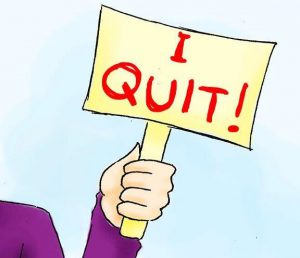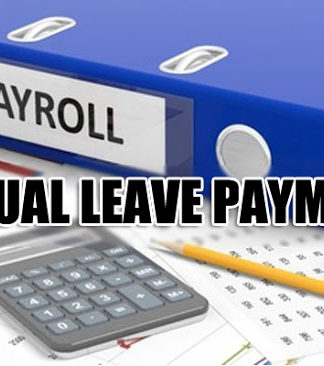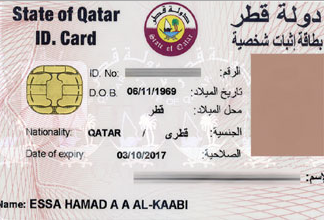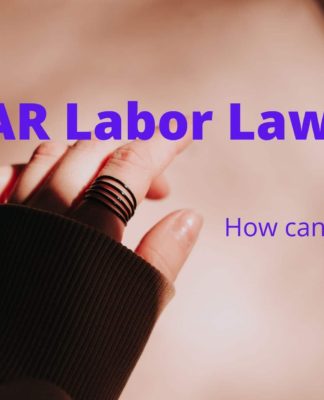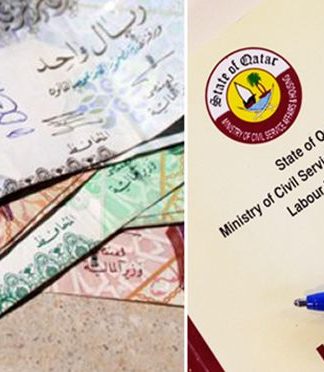KNOW YOUR RIGHTS WHEN YOU RESIGN OR GET TERMINATED FROM YOUR JOB IN QATAR
On 06 Apr 2021
Resignation and termination of the contract are two of the most common reasons why an employee in Qatar leaves his/her job.
If you are one of those people who are planning to switch jobs in Qatar وظائف في قطر or call it quits for good, did you know that you have rights and obligations following your exit from the company?
Here’s what the law says:
Notice period
When resigning from a new job, notify your current employer about your plan to transfer to another company. To do this, check out the Electronic Notification System of the Ministry of Administrative Development, Labour & Social Affairs (MADLSA).
▪ Give a 1-month notice period if your current job is for 2 years or less.
▪ Give a 2 months notice period if your current job is for more than two years.
For employees who receive their wages monthly:
▪ Five years or less: 1-month notice
▪ More than five years: 2 months notice
For employees who receive their wages hourly, daily, or weekly:
▪ Less than one year: 1-week notice
▪ More than one year but less than five: 2 weeks notice
▪ More than five years: 1-month notice
Read also: How to Change Jobs in Qatar Without NOC (2021)? Here are 5 Easy Steps!
When leaving for good, you need to fill out and submit this form: Notification of termination of the contractual relationship and departure of the country from worker to the employer.
Complete the process of changing workplace/ leaving the country on MADLSA’s website.
The above procedures are necessary for you to receive your end-of-service benefits (if you have worked for more than a year in the company) and Full and Final (F&F) settlement dues.
Failing to give the appropriate notice means that the party terminating the contract will have to pay compensation to the other party. The compensation should be an amount equivalent to the wage of the notice period or what’s remaining of it.
Are you ready for a career change? Apply from thousands of job opportunities in Qatar فرص عمل في قطر now hiring online.
Wages and other Sums
Once you resign or get terminated from your job, you are entitled to receive your salary in full for the notice period.
Your must receive your wage and any other owed sums before the end of the day after the notice period ends.
Read also:
Confused about Qatar’s New Labour Law? Read this FAQ 2021 Updates!
Changing Employers in Qatar: What Will You Receive After Resignation?
If you have leave days that you have not taken, you are then eligible for payment in lieu of your annual leave.
You may also receive the end of service gratuity as explained below:
End of Service Gratuity in Qatar
If you’re leaving the company after working there for more than one (1) year, then you are entitled to End of Service (EOS) gratuity.
EOS is a part of the Qatar Labour Law that stipulates a sum of money to be paid to an outgoing employee.
Read also: How to Calculate End-of-service Gratuity and When is it Payable?
The terms for EOS must be included in your contract. These contracts are normally terminated once their duration has passed OR prematurely under several conditions i.e. employee termination or resignation.
According to Qatar Labour Law, Law No 14 of the Year 2004, here are some of the important points to consider concerning your EOS:
Under what circumstances can you end your contract?
Following the new law, you may discontinue your contract any time, even during your probationary period, however, you must render the early mentioned notice periods.
Article (51)
- You may terminate your service contract before its expiry date if it is of a definite duration and without giving reasons for the termination or if it is of indefinite duration and retains your full right to obtain the end of service gratuity in the following cases:
– If your employer commits a breach of his obligations under the service contract or the provisions of this law.
– If your employer or your responsible manager commits a physical assault or immoral act upon you or any of your family members.
If the employer or his representative has misled the worker at the time of entering into the service contract as to the terms and conditions of the work.
– If continuance with the work endangers the safety and health of the worker provided that the employer is aware of the danger and does not take the necessary steps to remove it.
Still looking for a new job? You need the help of an agency specializing in outsourcing in Doha for a fast and easy application process.
What will you receive once you leave your job?
Article (54)
- In addition to any sums to which you are entitled upon the expiry of your service, your employer shall pay your end of service gratuity if you have completed employment of one year or more.
- This gratuity shall be agreed upon by you and your employer, provided that it is not less than a three-week wage for every year of employment. You shall be entitled to gratuity for the fractions of the year in proportion to the duration of employment.
- Your service shall be considered continuous if it is terminated in cases other than those stipulated in article 61 of this Law and is returned to service within two months of its termination.
- Your last basic wage shall be the base for the calculation of your gratuity.
- Your employer is entitled to deduct from the service gratuity the amount due to him by you.
What happens if the worker dies during the employment?
Article (55)
- If the worker dies during the employment for whatsoever causes, the employer shall within a period not exceeding fifteen days from the date of death deposit with the court any wages or entitlements due to the worker in addition to the gratuity.
- The depositing record shall contain a detailed report indicating the method of calculating the sums referred to and a copy of the record shall be delivered to the Department.
- The court shall distribute the deposited sums amongst the heirs of the deceased worker in accordance with the provisions of the Islamic Sharia or the personal law applicable in the country of the deceased and if three years lapse from the date of depositing without the person entitled to the deposited sums being known the court shall transfer the said sums to the public fund of the State.
When an employer is not obliged to pay a worker’s EOS?
Article (56)
- If your employer maintains a retirement system or a similar system which secures for you a greater benefit than the end of service gratuity to which you are entitled under the provisions of Article (54) of this law, shall not be obligated to pay you your end of service gratuity in addition to the benefit available to you under the said system.
- If the net benefit accruing to you under the said system is less than the end of service gratuity, your employer shall pay you the end of service gratuity and return to him any sum whereby you may have contributed to the said system.
- You may choose to receive either your end of service gratuity or your pension accruing to him under the said system.
What penalties you may be charged?
Article (59)
The disciplinary penalties which may be inflicted on the workers are:
- Notification, which shall be deemed to have been achieved by a written letter to you containing a notification of the violation you have committed and requesting you not to repeat the commission thereof and warning you of the infliction of a severer penalty in case of repetition.
- Deduction from your wage for a period not exceeding five days in respect of one violation.
- Suspension from work together with non-payment of your wage for a period not exceeding five days in respect of one violation.
- Suspension from work without payment or with reduced payment pending the adjudication upon the criminal charge attributed to you and if you are acquitted or if the charge against you has been dropped, the suspension shall be deemed to have never taken place and you shall be paid your entitlements during the suspension period.
- Postponement of the grant of annual increment for a period not exceeding six months or the non-payment therefrom in the establishments which maintain increments systems.
- Postponement of promotion for a period not exceeding one year in the establishments which maintain promotion systems.
- Dismissal from work with payment of the end of service gratuity.
- Dismissal from work and non-payment of the end of service gratuity.
Article (61)
Your employer may dismiss you without notice and without payment of your end of service gratuity in the following instances:
- If you assume a false identity or nationality or submit false certificates or documents.
- If you commit an act that causes gross financial loss to the employer-provided that your employer shall notify the Department of the incident within 24 hours from the time of he’s being aware thereof.
- If you violate more than once the written instructions of your employer concerning your safety and the establishment despite you’re being notified in writing of the violation provided that these instructions shall be written and posted up in a conspicuous place.
- If you fail more than once to carry out his essential duties under your service contract or this law despite his having been notified in writing thereof.
- If you disclose the secrets of the establishment where you are employed.
- If you are found during your working hours in a state of drunkenness or under the influence of a drug.
- If you commit an assault on the person, your employer, your manager, or one of your supervisors in the work, during the work, or by reason thereof.
- If you repeat your assault on your colleagues at work despite you’re being warned in writing thereof.
- If you absent yourself from work without legitimate cause for more than seven consecutive days or fifteen days in one year.
- If you have been finally sentenced for a crime involving immorality or dishonesty.
How is your final pay calculated?
Article (72)
Your wage during your annual or sick leave and your end of service gratuity shall be calculated on the basis of your basic wage on the date of entitlement and if you are employed on a piece-by-piece work basis, the entitlement shall be calculated on the basis of his average wages for the 3 months preceding the date of entitlement.


















